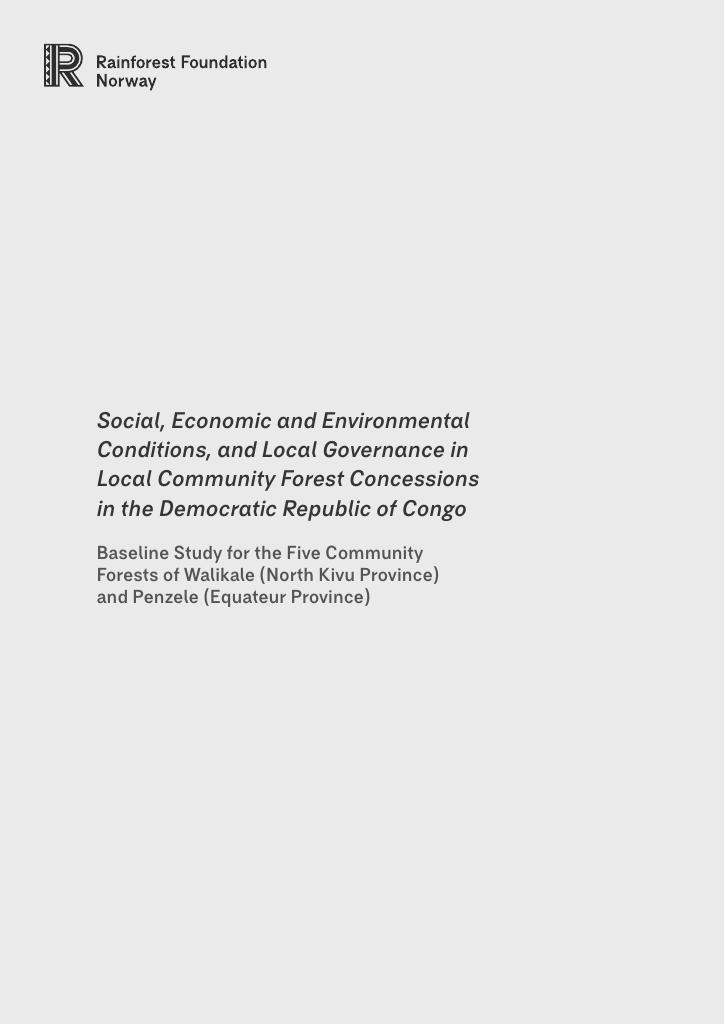Studie
Social, Economic and Environmental Conditions, and Local Governance in Local Community Forest Concessions in the Democratic Republic of Congo (French) Baseline Study for the Five Community Forests of Walikale (North Kivu Province) and Penzele (Equateur Province)
In the DRC, RFN has been promoting community-based forest management since 2008, first in supporting local communities in the mapping of their land, and then helping them plan the management of their traditional forests. Since 2014, Congolese forest policy has had a provision for Local Community Forest Concessions (CFCLs). Taking advantage of the favorable context created by this new legislation, RFN is supporting communities in several locations to consider this opportunity for securing community rights in combination with sustainable management of forest resources. RFN's vision is to make local communities and indigenous peoples’ key actors in local forest governance, with recognized and strengthened rights for sustainable and equitable management and improvement of their living conditions. It is in this context that this study was conducted in order to establish a baseline for the socio-economic, environmental and local governance conditions in the Forest Concessions of local communities and indigenous peoples accompanied by RFN in North Kivu (5 CFCL) and Equateur province (1CFCL). We wish to measure the developments of the reference indicators again, in three- or five-years’ time. The objective of the study was to develop and use a participatory methodology to assess; 1) the environmental conditions, 2) the socio-economic conditions, and 3) the local governance of five CFCLs in Walikale and one in Penzele. At this early stage, (concessions only applied for or recently granted in 2019) the purpose was not to evaluate the impacts of community forest but to carry out a baseline study and to propose a methodology that can be replicated later by RFN partners to measure these impacts. In particular, this baseline study seeks to estimate the state of the forest resources, their current uses and how this influences the standard of living of the managing populations (economic, food, health, etc.). The methodology should make it possible to identify current dynamics and monitor changes between 2019 ("year 0") and 2024 ("year 5").
